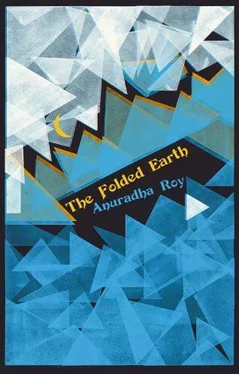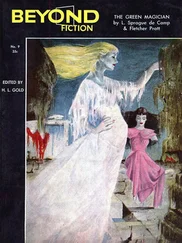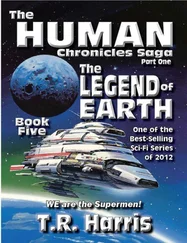* * *
Now my days became even busier, divided between hospital, Veer, school, and factory. The only constant, when I did come home, was the sight of Charu’s expectant face somewhere in the vicinity: perhaps the postman had come when no-one was looking and left a letter under a flower pot; perhaps he had intercepted me on the road and given me a letter. More often than not, nothing of the sort happened. Since early August many days had passed without letters. Every afternoon Charu paced about waiting for the postman, and gave up only when she heard the shouts of other cowherds calling their animals back from deep forests at sunset. I would see her soaked, rose-patterned umbrella bob up and down as she too ran down the squelchy slope towards the stream to rustle up her herd. Summer or winter, she wore the same plastic slippers, and in the monsoon, when she returned home, she had to spend a quarter of an hour sitting on the stairs to her house, sprinkling salt over her wet feet and calves to remove the leeches that had attached themselves to her skin. By this time she had a drooping, tired air: every day began hopeful and ended with the same dull disappointment.
It was not an easy time for her. That same month Ama sold Pinki to the butcher. “I wouldn’t have to sell your precious goat, if you didn’t cost me so much,” she had said when Charu pleaded with her. Ama had to finance the feasts for the prospective grooms; and there was the money she had to pay the Ohjha. “These goats are not pets,” she reasoned. “Why do you think I keep them?” All their goats were destined for the slaughterhouse, and were sold to a butcher in the market when they reached the right size. Charu had gone through these partings before. She should have got used to it, but the pain was as new, as unendurable each time. The day the butcher came to take her goat away, she stayed inside their house, curled up in a corner with a pillow over her head, holding onto the bell she had put on Pinki’s neck when the goat was a kid that delighted in leaping about, spinning in mid-air before hitting earth again. I saw the scrawny butcher from my window after the money had changed hands, tugging at Pinki’s rope, cajoling her to move in the direction of the bazaar. He tried oak leaves as enticement and when that failed he hit her rump with a stick. Pinki dug in her heels and pitted all her strength against his. He could not budge her. When all his attempts failed, Ama sent Puran to help the butcher. At such times she was relieved at Puran’s feeble mind: he had never made the connection between the occasional disappearance of goats and the kind man who fed them fresh leaves. Upon Puran’s arrival Pinki baa -ed with relief. I watched them walk out of sight, the goat obedient now, trotting behind Puran as if it were being taken out to graze like every other day.
The next afternoon, eating lunch with Veer, I found myself pushing away the mutton curry, bile rising within me. When I told him what had happened, he looked at me with an amused smile. Had I not eaten meat all my life and known where it came from?
“This was different,” I said. “I knew the goat that had been taken away by the butcher yesterday. It had a name and a personality.” Everything had changed after what I had seen: the way the goat trusted Puran and the butcher, the way it was betrayed. I’d never eat meat again, I said. Veer pinched my cheek. “You need toughening up. You’re too easily upset.”
Slaughtering animals was something he had been made to do by one of the uncles to whom he was sometimes farmed out for the school holidays. “The uncle thought me a coward,” Veer said. “And he was right. I couldn’t stomach the slightest cruelty to anything. I’d run away and hide when there were fights. I was every bully’s target at boarding school. Once they paraded me in the corridors in a skirt because I was too frightened to join the boxing competition. I was the school wimp.”
The uncle made him wring the neck of a chicken the first day, then skin it, clean it, cut it, and watch it being cooked. He had to eat it at lunch. The next week’s lesson was a white goat kid. Veer had to bring the cleaver down on its neck. He was twelve years old. For the rest of his boyhood he no longer stayed away when pheasants and hares that had been shot on hunting expeditions were being plucked and skinned and cleaned. “And your Diwan Sahib?” Veer said. “He shot more birds than anyone. All this conservation bullshit he spouts is new.”
It was two weeks since Veer had returned. He was about to leave Ranikhet again, and this was our farewell lunch, hence the special mutton curry. Veer finished my share as well. “I’ll be starving the next few weeks, remember? Must eat up now,” he said, as I watched him suck the marrow clean from another bone before it joined the rest on his plate.
“I’ve never known you to starve,” I said. “And haven’t you read about the goat that Frank Smythe named Bartholomew? That goat walked with them all the way up the Valley of Flowers, he was their friend, and then one day he turned into food. They began to eat him, part by part.”
Veer laughed and ran his fingers through my hair as he got up, saying, “Time to leave, I can see. I’ll find a Bartholomew on the way, and save one of his teeth for you.” He was taking a German trekking group to the Valley of Flowers, which was at its most resplendent in the monsoon. Nobody could replace him at such short notice, so he told me when I protested that Diwan Sahib, still strapped to oxygen in the hospital, was too ill to be left. “I would pass it on to someone else if I could, really. I don’t want to leave the old man right now, either, but I can’t let the group down; they’ve planned this for a year. It wouldn’t be professional. Besides, you’re here, aren’t you?”
It was the last week of September before the next letter from Kundan Singh came, this time in an envelope. This was only the second time he had used an envelope, which cost much more than an inland letter. This time too, he used it to enclose a photograph. In the photograph Kundan wore an ironed white shirt and was frowning so hard at the camera that he looked cross-eyed. His hair had been oiled and flattened. Charu looked for a minute at the picture and then sandwiched it between her palms. She was too shy to look at it properly, not while I was there. She would take it to one of her hideouts and study every inch of it the minute she got a chance.
She sat down on her usual chair and waited for me to read her the letter but I had other things to do, which I finished while she waited, tapping a toe on the floor. I had already told her that I would not read the letters to her for much longer, thinking this was the only way she would work hard at her lessons again — she was tending to be lazy.
I was so little at home now that unpaid electricity and water bills had collected. My chairs staggered under the weight of clothes and the morning’s milk would certainly go rancid if I did not put it to boil at once. I went about my chores and then, as I sat at my table writing cheques for the bills, I became aware of a faint sound, almost no more than breathing: Charu’s voice. She was whispering in a low undertone. I could hear the hisses of the sibilants, the drawn out vowels where she halted halfway through a word trying to complete it. I sat very still, pretending to be immersed in my bills, wondering if it could be true: Charu was reading by herself! At last, on the page and in her head, the alphabet had resolved itself into words she could make sense of. I stole a glance at her and saw her squinting at the letter, her lips moving as she mouthed the words. Her fingers traced the line she was on. The quietness of the room had deepened because of her whispers. Nothing stirred. Perhaps the birds outside.
Читать дальше












